#Hub Ghana Sports
Explore tagged Tumblr posts
Text
DELAY INTERVIEWS YPEE
DELAY INTERVIEWS YPEE
youtube
View On WordPress
0 notes
Text
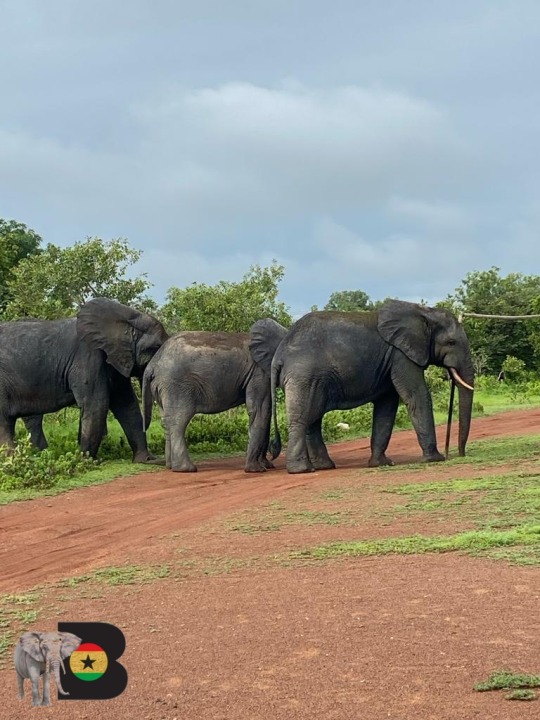
Discover the Essence of Ghana Vibrant Cities, Serene Beaches, and Rich Traditions.
Ghana, a country in West Africa, is a treasure trove of cultural diversity, natural beauty, and vibrant cities. From the bustling streets of Accra to the serene beaches of Cape Coast, Ghana has something for everyone. In this blog post, we'll take you on a journey through the best of Ghana, exploring its rich traditions, stunning landscapes, and vibrant cities.
Vibrant Cities
Ghana's cities are a fusion of traditional and modern culture. Accra, the capital city, is a must-visit, with its vibrant markets, historical landmarks, and nightlife. Kumasi, the cultural hub, is home to the Ashanti Kingdom and its rich heritage. Tamale, in the north, is a melting pot of cultures, with a unique blend of traditional and modern architecture.
Serene Beaches
Ghana's coastline offers a relaxing escape from the hustle and bustle of city life. Cape Coast, with its stunning beaches and historic castles, is a popular destination. Elmina, with its picturesque fishing village and beautiful beaches, is another must-visit. Busua, a serene beach town, is perfect for relaxation and water sports.
Rich Traditions
Ghana is renowned for its rich cultural heritage. The Ashanti Kingdom, with its vibrant Kente cloth and traditional drumming, is a highlight. The Akwasidae festival, celebrated by the Ashanti people, is a colorful display of traditional dance, music, and costume. The Ewe people, in the east, have a unique tradition of storytelling and music.
Natural Beauty
Ghana's natural beauty is breathtaking. The Volta Lake, the largest man-made lake in the world, is a stunning sight. The Afadjato Mountain, the highest peak in Ghana, offers breathtaking views. The Wli Waterfalls, in the east, are a scenic delight. The Mole National Park, in the north, is home to a diverse range of wildlife.
Ghana is a country that has something for everyone. From vibrant cities to serene beaches, rich traditions to natural beauty, Ghana is a destination that will leave you in awe. With Best Ghana Tours, you can experience the best of Ghana, with our expert guides and carefully curated tour packages. So why wait? Book your Ghana tour today with Best Ghana Tours to discover the essence of Ghana!
#bestghanatours#travel#tourism#tour package#ghana#accra ghana#travelwithus#tourist#worldwide privacy tour#summer#all inclusive#accra#activity#tamale#landscape#europe#africa#beauty#nature#wildlife#culture#cape coast#heritage#yearofreturn#beyondthereturn#new york#united states
16 notes
·
View notes
Text

*inspired by bro @bysisandamgedezi who had me reflecting on what has gone on in my own life & how far i’ve come.
for the lesser part of the last 4-years I’ve spent time recovering from something brutally destructive & soul crushing that I’ll never completely be whole from. there is no justice that will ever "restore" what I lost. I can never be made whole, by therapy or anyone for that matter. shit, a nigga just had to pick up the pieces and rebuild.
It’s been an emotional rollercoaster, juggling the ebbs & flows of it all.
I think approaching 30 the outlook leans towards no points to prove to anyone anymore. being misunderstood, underestimated etc it's shit you gotta charge to the game, more important to be present & thankful in the things you're able to do while working to be & do more.
the next few goals I’d like to knock down:
* get Run & Gun Studios (my consultancy agency) into the crossroads of art, sport, technology and culture - as a leading voice to strategically consult in.
* get to push the PSL as a top 10 league globally by way of production quality & broadcasting which snowballs into work with Serie A/La Liga/Ligue 1 regaining a greater share of the competitive market held in a vice grip by Premier League.
* exercise my writing skills in scriptwriting an hour a day with the goal of having espionage/thriller/political dramas in SA tv being picked up.
* stack my bread, travel Africa (Ghana/Nigeria/Kenya/Congo/Morocco) as my first destinations to then go to Europe & Asia.
* work on my “Branded Anarchy” photo series documenting street style/night life/black businesses of all the black and brown talent that exists in the city to then exhibit my work at 16 on Lerotholi for years and years to come.
* learn to build things with my hands, furniture specially.
* do dope and fly shit with the people whom I think exists in that realm.
* further build my career in digital with the goal of being an insights/cultural analyst for my favourite boutique e-comm hubs.
* build a budding car collection of my favourite 70s & 80s models starting with the ‘87 E30 & ‘87 911 Cabriolet.
*see the sporting & creative talents of my son shine abundantly with me his dad through the continued blessing of Allah to be his springboard to greatness.
*try not to give him a baby sister until he’s at least 10 (after that it’s triple vasectomy gang)
in the illustrious words of YZY *Jay’s favourite line: dawg, in due time*
2 notes
·
View notes
Text
The New Force's Cheddar unveils ambitious plan to revolutionize Ghana's Sports and Creative Industries, vows to create 16 multifunctional sports academies nationwide to unearth talents
In a groundbreaking virtual presentation, Nana Kwame Bediako aka Cheddar, founder and leader of The New Force, unveiled his vision to transform Ghana into a hub for world-class athletes and artists. Dubbed “The 12 Pillars,” Cheddar’s comprehensive plan aims to invest in the country’s sports and creative industries, focusing on ownership and control. At the heart of this initiative lies the…
0 notes
Text
Explore The Categories Of Products You Can Sell On Ololo Express

Explore The Categories Of Products You Can Sell On Ololo Express
In the bustling digital realm, Ololo Express emerges as a reputable Ghanaian online marketplace, bridging the gap between enthusiastic sellers and discerning buyers. With an array of categories to explore, it's your go-to platform for an effortless online selling and shopping experience. Let's delve into the extensive categories you can traverse on Ololo Express. 1. Fashion Boutique Dive into the Fashion category to discover a plethora of clothing, accessories, and footwear. It's an arena for fashion aficionados and vendors to meet, trade, and stay ahead in style. 2. Electronics Store The Electronics category on Ololo Express is a haven for tech enthusiasts. From the latest gadgets to essential appliances, it's where quality meets convenience. 3. Mobile Tech Hub Explore the Mobile Phones & Tablets section for the newest models and beloved classics, making connectivity a breeze for buyers and selling lucrative for vendors. 4. Homely Comforts The Home, Furniture & Appliances category is your gateway to a comfortable and aesthetic living space, offering a vast range of products that cater to various tastes. 5. Automotive Avenue Delve into the Vehicles category to discover a range of automobiles and related services, ensuring a smooth ride for both buyers and sellers. 6. Realty Corner Whether buying, selling, or renting, the Properties and Rentals categories on Ololo Express make real estate transactions straightforward and secure. 7. Wellness & Beauty The Health & Beauty category is a treasure trove of products aimed at enhancing well-being and personal care. (And Many More...) From the nurturing Babies & Kids section, the robust Commercial Equipment & Tools category, to the enriching Books and engaging Sports, Arts & Outdoors categories, Ololo Express houses a multitude of other categories ensuring a comprehensive Ghanaian online marketplace experience. Ololo Express is designed for the modern-day seller and buyer, promising a seamless online selling and buying journey. Embrace the ease of online commerce, and explore the multitude of opportunities awaiting on Ololo Express, making the online marketplace in Ghana a bustling commerce hub. Read the full article
0 notes
Text
Is There A Black Henry Ford?
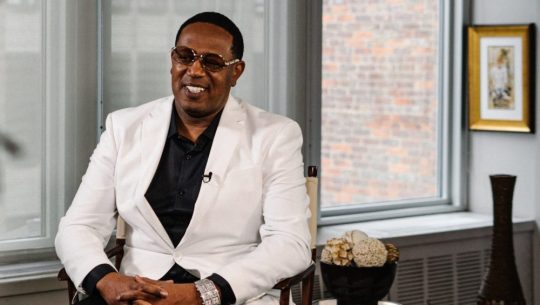
So, Hip Hop mogul and entrepreneur, Percy “Master P” Miller has continued to expand his business venture as he announced that he would partnered with former Telsa engineer, Richard Patterson, to creating his own line of sport and exotic cars. This company that these men are creating is called Trion Supercars. Since Richard Patterson used to be a engineer for Telsa, and he was the designer of Model S car, the Boeing 777, and the Dodge minivan, and Master P, who expanding his business empire, would recruit Patterson and form a team to create a black owned supercar manufacturing company. Or I would called it African American owned supercar manufacturing company and it would be the very first African American owned car making company in the United States.
Now, that Master P and former Telsa engineer, Richard Patterson are creating a black owned car manufacturer company, are there other car manufacturing company outside the U.S.? Of course there are and here are the names of automobile making companies that are founded and owned by black Africans.
Kantanka Motors, founded in Ghana in West Africa by Kwadwo Safo Kantanka in 1994. In 2004, the Ghanaian owned automobile manufacturing group was incorporated as a limited liability company to research into the manufacturing of automotive components and their combination with other parts outsourced from component suppliers to form a complete built unit, according to it’s website: http://www.kantankamotors.com/ In 1998, the first complete built unit (CBU) was manufactured using over 75% of local components, locally manufactured including the engine block. By 2006, the first SUV, the Onantefo, was manufactured. The detail of this automobile maker website also stated that all Kantanka vehicles are 100% manufactureded and assembled in Ghana.
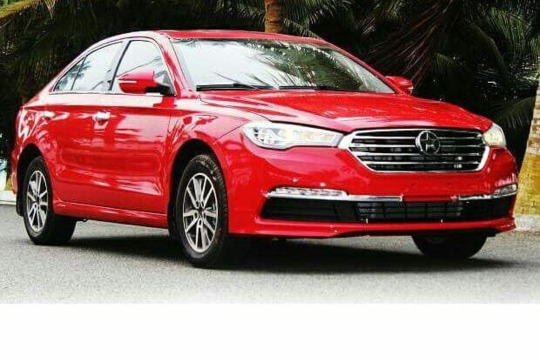


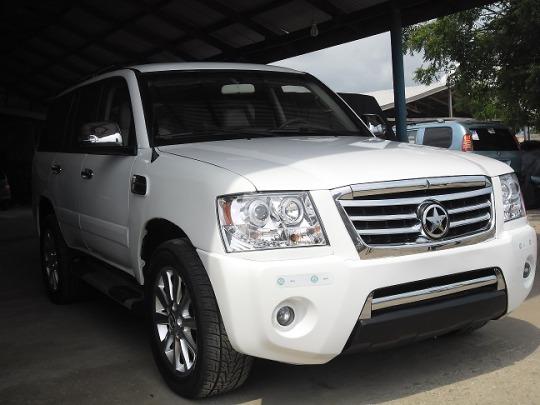
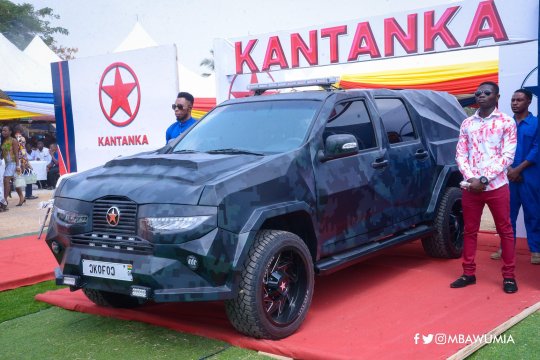
Holy shit, is this car made of armor?
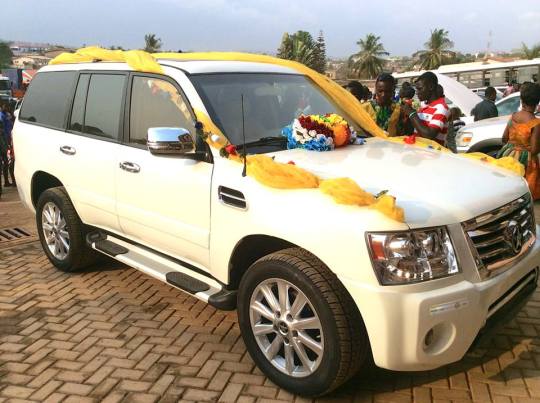

Next is the one from Nigeria, a company called Innoson Vehicle Manufacturing. According to it’s history from it’s website, this Nigerian owned automobile manufacturing company was founded in 1978 in a commercial town in the eastern part of Nigeria called Nnewi. This town was a central hub for motorcycle importation, now today, it became a importation hub for foreign used vehicles. In 1987, there was a brand new motorcycle suggesting that it was built by Innocent Chukwuma who founded Innoson Motors. Innocent Chukwuma was passionate for the people and was core business philosophic of bringing down costs and passing the gain to customers, so, he pioneered the first Made-in-Nigeria Motorcycle brand. In 2002, he he had successfully driven out tokunbo (foreign used) motorcycles out of Nigeria forever.
Now in the present, Innoson Vehicle Manufacturing, or IVM, is manufacturing durable and affordable brand new automobiles for Africans.
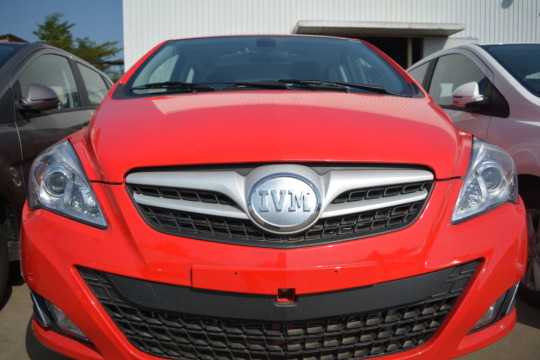

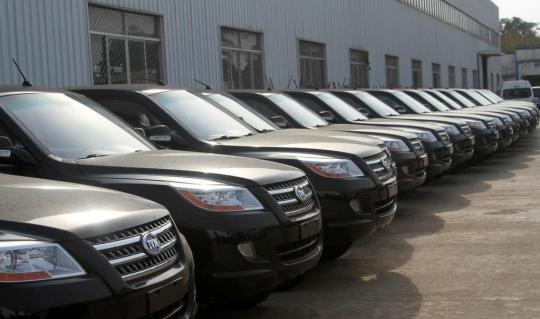
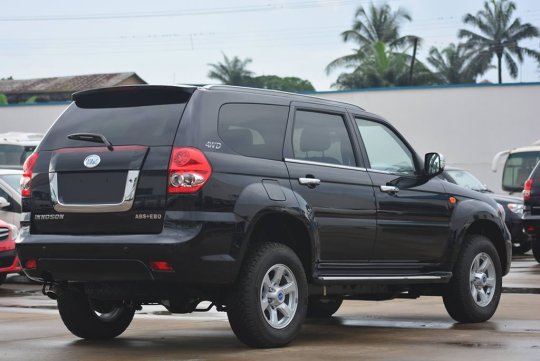
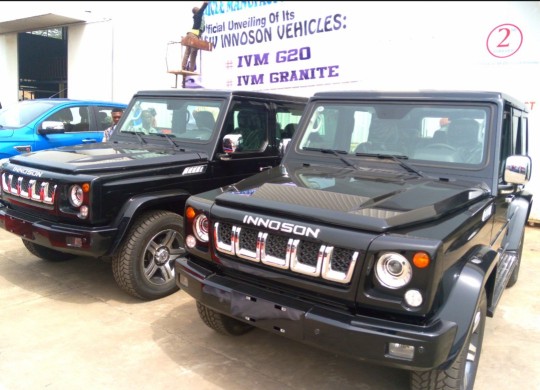
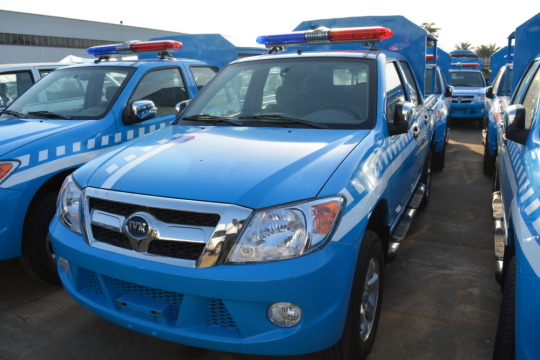

Here are the ones that made from Uganda in eastern Africa: Kiira Motors Corporation. This corporation is state-owned as a State Enterprise which was established to Champion Value Addition in the Domestic Automotive Industry for Job Creation and Diversification of the Ugandan Economy as a Key Growth Area in Line with Vision 2040. The Equity Partners are Government of the Republic of Uganda represented by the Ministry of Science, Technology and Innovation (96%) and Makerere University (4%). More info about Kiira Motors, accordingly, that the Ministry of Science, Technology and Innovation is mandated to establish the governance and management structures of KMC and Provide Policy Guidance and Oversight to the Nascent Automotive Industry in Uganda. The Uganda government is concerned that, as it stated in the company website info: https://www.kiiramotors.com/about/, the Market Entry Strategy is Assembly of Vehicles and Technology Transfer with Reputable Automotive Manufacturer(s) and Progressive Enhancement of the Domestic Value added in the automotive industry through exploring Sustainable Multi-Sectoral Backward, Forward and Lateral Linkages with Mineral, Agriculture, Industry, ICT, and Transport Sectors for Local Content Participation. In April 2008, the government of Uganda had approved the Roadmap for the Kiira Vehicle Plant and allocated 100 acres of land at the Jinja Industrial and Business Park as it was funded as capitalization for the Construction of the Kiira Vehicle Plant Start-Up Facilities; Purchase of Start –Up Plant Machinery, Equipment and Tools; and Start-Up Operational Capital. That’s a good government strategy for economic and science and technology purpose, right?
Kiira Motors Corporation was founded by a team of college students and staff members in 2007, at the Makerere University, part of a international consortium called the Vehicle Design Summit (VDS), a Massachusetts Institute of Technology (MIT) initiative with the goal of designing and producing the Vision 200.
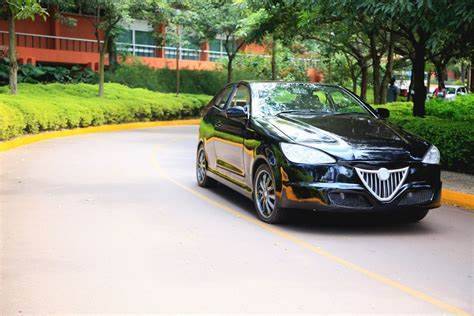

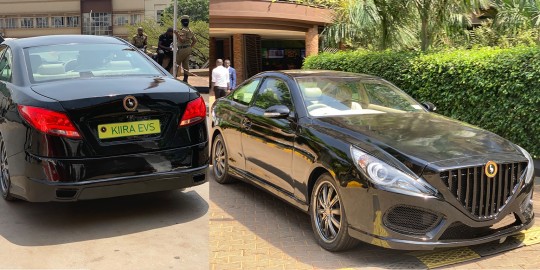

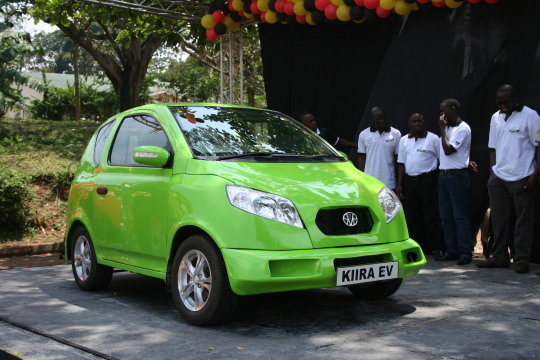

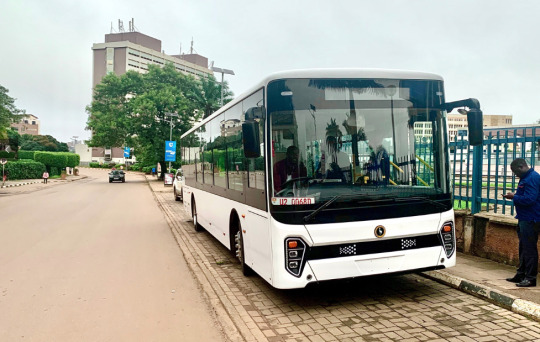

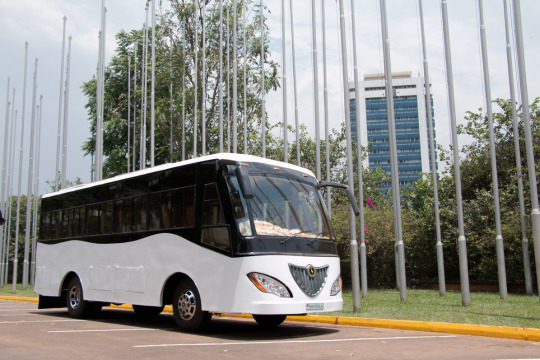
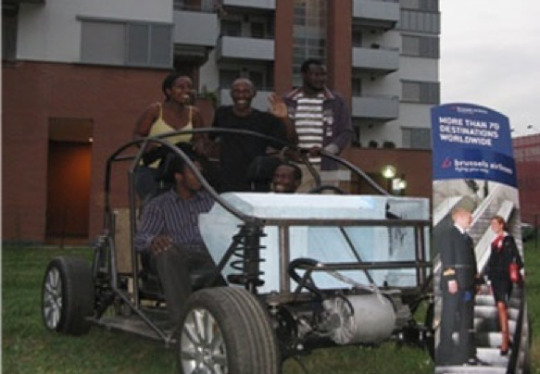
Part of the Makerere University VDS Team Poses for a Picture in the Vision 200.
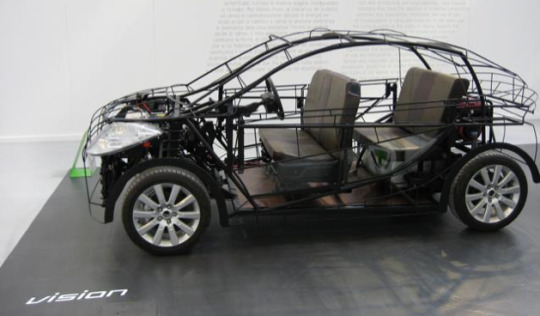
The Vision 200 on Display at the Museo Nazionale dell'Automobile in Turin, Italy.
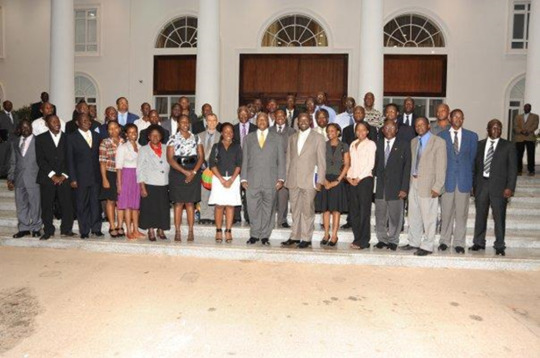
Yoweri Kaguta Museveni and the Faculty of Technology Delegation after a Meeting at State House, Entebbe, December.
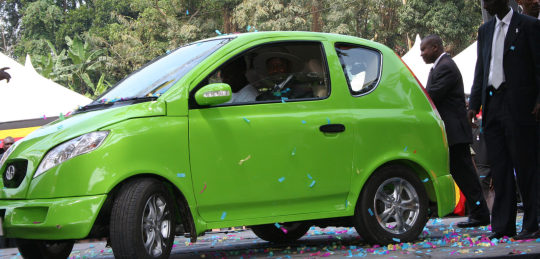
Paul Isaac Musasizi takes H.E. Yoweri Kaguta Museveni for an Exhibition Drive in the Kiira EV at its Launch on 24th November 2011.

Her Excellency Angelina Wakapabulo, Uganda’s High Commissioner to Kenya.
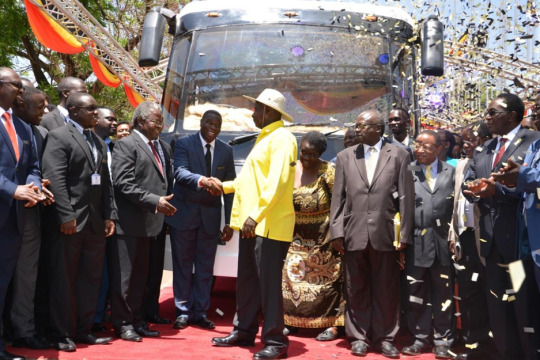
H.E Yoweri K Museveni congratulates KMC CEO Paul Isaac Musasizi at the Kayoola Solar Bus.
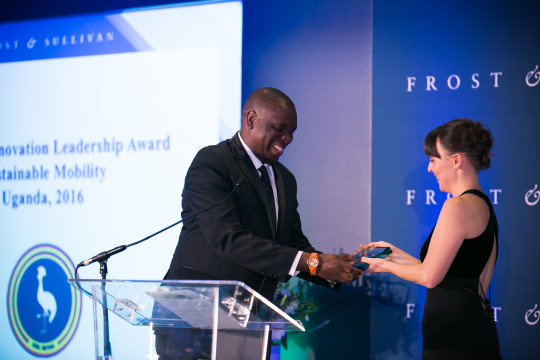
The CEO of Kiira Motors Corporation receives the Frost & Sullivan Award.
There are two other companies that are manufacturing automobiles, such as Nord Motion from Nigeria and Mobius Motors from Kenya.


I hope you all like what I posted and I don’t know if there’s any more car manufacturers in Africa, but I got enough to share these facts with you all. Yes, I know Mobius Motors was founded by a white guy who name is Joel Jackson, but I could be sure that the SUV was designed by a black person, but who knows? Anyway, I posted and share my thoughts on Master P’s intention on created the African American owned car manufacturing business, in matter of fact, there was probably was a black person who designed and created a car in between mid or late 19th century or the early 20th century. I believe I’ve already researched a African American figure who was a car manufacturer at that time before, I just forgot who it is, but it’s a good thing, though. It’s also good that Hip Hop mogul Master P partnered up with a black automobile engineer to create a company, and if he have heard about some Africans building cars, he would do business with them; it would at least bring some attention because these African made automobiles deserves attention from the world. I’ll be honest with you all, African Americans and any African decent should do business with Africans in the continent, whether they move there to do business or form a connection from one country to the next one or more. There are most African Americans or Africans in the diaspora moved there to establish businesses while there are most Africans who living in the diaspora invested in Africa as they partnered with their own people. I’ll tell you more details about the true facts about Africa next time.
So, now I hope you like my blog, feel free to like, share, and comment. Blog you all later, followers.
#business#enterprenuership#economy#automobile manufacturers#black owned#african american owned#black business#african business#black african business#partnership#company#investment#innovation#africa#nigeria#ghana#uganda#kenya#master p#hip hop#telsa#engineering#cars#sport cars#luxury cars#suv#trucks#bus#technology#invention
36 notes
·
View notes
Text
Football People - Selwyn Sackey

Selwyn Sackey
Football is a game of emotions. It has its high and lows. There will always be a dip but the most important thing is how you rise up and exceed expectations. In football, there have been a number of great nations in the game that have taken the fall. Germany’s exit in the 2000 Euros brought about the famous ‘Reboot’ by the German Football Association and the German Government.
They invested in community youth football making sure every community has football pitches for kids to come and train by experienced and trained coaches. The talents spotted are sent to the national team academy. All Bundesliga clubs are required to have academies. This initiative was rewarded 14 years later at the Maracana stadium, in Rio de Janeiro.
2014 World Cup was the crowning moment for German football but the twilight for Ghana football. 21st June 2014 Estadio Castelao, Fortaleza. Group G game between Ghana and Germany ended 2-2. The game was spoken about as the best game in the tournament. The happenings during the tournament and the aftermath began the wreck of the great ship, Ghana Football Association.
Out of that storm, produces the Dzamefe Commission white paper which has never seen daylight. It is obviously ignored and the wisdom in it will clearly be untapped just like other commission reports.
2019, already tops interesting years for this beautiful tropical country. Football as the passion of the nation has always been used by the government as a tool to calm the chaos. Proper investment in the preparation of Black Stars to the 2019 Africa Cup of Nations. The coach of the national team was quoted saying this is his best camp ever in his national team career. Good intensions by the Father of the nation, His Excellency Nana Addo Dankwa Akufo-Addo to put in his best to make the team win the 2019 AFCON after 37 years.
This was not only for the team to win the trophy and get the four million dollar price. It was for the football loving people of Ghana. The pride of being African Champions in the midst of our lowest point in football. This was also going to be important for the grand Year of return party in Ghana this December. Unfortunately, football doesn’t reward knee jerk reactions. Football demands years of planning, investments, and developmental patience.
‘Number 12’ did to Ghana Football what the 9/11 plane did to the World Trade Center. Now we must rebuild; statutes and structures. That is the mandate of the Normalization Committee. After this, they hand over to the “Football People”. Who are the “Football People”? A football person is someone who owns a football club or is involved in football administration. But do we think it is right for the “Football People” to manage the day to day affairs of the Football Association considering conflicts of interest? Which accompanied with bribery and corruption lead to the crash of Ghana Football.
The question then becomes, who should manage Ghana Football? If you look at the history of Ghana football, it has always been a group of passionate men who take time out of their daily businesses to invest their time and money in their favourite clubs. These men have done this for years and to say you will not let them have a say anymore in Ghana Football will be difficult. Where there hasn’t been any ruling saying members of the old association have been suspended from football, they have every right to take over after the normalization.
I still believe there are honest football experts in the old regime. They have great ideas and are ready to solve the problems we faced in the past. They also understand the traditions and dynamics of the local game which no novice will be able to handle. You will have to get your hands dirty sometimes. The Normalization committee members will tell you it’s been a struggle.
The bigger struggle now is how can we trust the people to take over Ghana football to do it right? People have declared their interest to lead the football family. The politics has begun and you don’t expect it to be clean. Football people are going against each other when we need them to be together. Going forward we need a unifier, someone to calm the environment and lead the family with honesty and the right modern ideas. The league should be run autonomously rather than the Football Association like we previously did. The Association has more to do with grassroots development and management of the game.
Football is now a multi-billion global industry managed by people with football degrees and masters in various departments of the sport. Football Administration and Governance, Football Law and Intermediary, Football Business and Finance, Football Business Marketing and Sponsorship, Football Media and Broadcasting, Football Journalism, Football Stadium Events and Hospitality, Football Management and Coaching, Football Scouting and Talent Identification, Football Scientist and Psychologist. The game is being studied in universities all over the world.
Organised by the International Centre for Sport Studies (CIES) in partnership with three universities, De Montfort University in Leicester (England), SDA Bocconi School of Management in Milan (Italy) and the University of Neuchâtel (Switzerland), the FIFA Master in Management, Law and Humanities of Sport was created to promote management education within the sports world. It has grown to become a top graduate programme developing all-round managers who can cope with the increasingly complex world of sport.
The International Football Business Institute in Brussels with most of its alumni working in UEFA and major European clubs. The University College of Football Business in England with its campuses at the Wembley Stadium in London and Etihad Stadium in Manchester. UCFB also partners Real Madrid Graduate School; Universidad Europea at the Santiago Bernabeu. Most Universities in England and Europe have football courses in their curriculum. We also have the Cruyff Institute in Barcelona and Amsterdam teaching the values of Johan Cruyff and the philosophy of F.C Barcelona and Ajax. Italy known as the hub of football tacticians have their sanctuary at the Coverciano. The School that produced Antonio Conte, Carlo Ancelotti, Massimiliano Allegri, Maurizio Sarri and Claudio Ranieri. The school also houses all Italian national teams from Under 15 upwards. Other countries like India, China and USA have taken up this initiative.
Ghana is a football nation; our history defines that from the days of Ohene Djan. He fought for Africa from battling for one slot in the world cup with Asia and Oceania to Africa getting one slot in the 1970 world cup. Today, Africa has five slots in the World Cup. Top coaches like C.K. Gyamfi, Sir Cecil Jones Attuquayefio, Ben Kuofie, Lepowura Alhaji M.N.D Jawula, Sam Arday, Fred Osam- Duodu and Emmanuel Kwesi Afranie are the ones that built the Ghana Football we had. We need to tap into their knowledge and also with modern Football Professors to create a football curriculum to be introduced in our universities and then build a football university and an academy.
Not everyone wants to do the sciences, law and engineering. Passionate football students should also be flown abroad to study football courses and gain experience in the international industry There are passionate football fanatics who would love to see their professional lives in the sport. This will create jobs and contribute massively to the GDP of the country.
We talk about the decline of our ex-footballers after they retire. This is the best solution to give them a life after their playing careers. We have searched for solutions on how to reward our players without monetary incentives. Let’s give our players scholarships to study football courses in universities. Through this they gain their coaching licenses, talent id certificates, intermediary certificates and degree and masters certificates. This way we get our ex-footballers and individuals who are passionate about the game to run the clubs, the association and develop football in Ghana.
This creates an ecosystem where all the football brains together are working to develop the game and keep Ghana at the top forever. These passionate and hardworking individuals will be the Football People.
7 notes
·
View notes
Text
Fabric of society
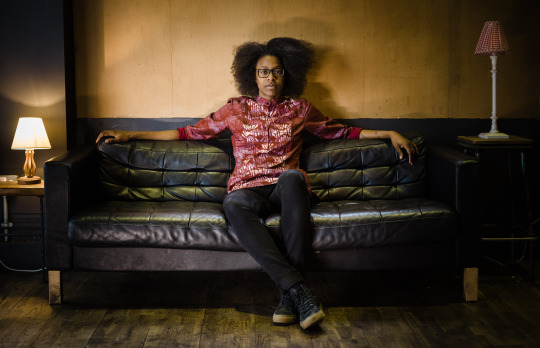
Words Emma Finamore; Photo Marcos Avlonitis
The bold, bright colours and beautiful, intricate batik patterns of wax print can be seen all over London, but they’re a visual symbol of somewhere else: Africa. From village to cotton field, from mill to market, a new film traces the story of how this fabric came to epitomise a whole continent – and it goes to some surprising places.
Peckham based composer Aiwan Obinyan, has just released ‘Wax Print’ – a documentary exploring this extraordinary material's relationship to Africa and its people, as well its journey. She wrote the film – as well as directing it, producing it, and even composing its soundtrack – after bering inspired by something her Nigerian grandmother said.
"I grew up with the prints,” she explains. “But when I heard my grandma call it 'Hollandaise'...and I was like, how is it Hollandaise? What does that mean? I noted it and got on with my life but then later I started making clothes and wanted to use that fabric, and thought it would be nice to show my customers where the fabric comes from and a bit of the history, and I thought it as going to be simple...but the more questions I asked the it just took me from one country to another, to different periods of time. For two years I traced the story." This took her and her camera to Ghana, Nigeria, the Netherlands, even to Manchester: "Wax print was made in Manchester for over 100 years, at ABC Wax, from 1908".
That’s because, despite being seen very much as ‘African’ fabric, wax print’s story is one of colonisation, international trade (including the slave trade) and industrialisation, across multiple nations, continents and cultures. During the Dutch colonisation of Indonesia in the 1800s, Dutch merchants and administrators became familiar with the nation’s batik technique. “They took it from Indonesia and figured if they could mechanise it, they could sell loads of it. It was originally a handmade print," explains Aiwan. The owners of textile factories in the Netherlands started developing machine printing processes which could imitate batik, hoping that the far cheaper machine-made imitations could outcompete the original batiks in the Indonesian market: creating the look of batik without the labour-intensive work required to make the real thing.
West Africans recruited between 1831 and 1872 from the Dutch Gold Coast to serve in the Dutch colonizing army in Indonesia would have seen these prints, and when retiring to Elmina, in modern Ghana, they may have provided an early market for the imitation batik. That’s one theory, but what we do know is that demand for the fabric grew in African ports and throughout West Africa, prompting Scottish, English, and Swiss manufacturers to follow the Dutch in producing and selling wax print.
The material quickly became a part of African apparel, and of society: women used the fabrics as a method of communication and expression, with certain patterns being used as a shared language, with widely understood meanings. It was soon also used for formal wear by leaders, diplomats, and the wealthy population.
Aiwan’s telling of this tale begins with her own story and relationship with the material. "Growing up in south east London, being bullied for being African - it wasn't cool to be African in the ‘90s - and wanting to hide my identity as much as possible,” she says. “And one of the most immediate, physical symbols of Africa is wax print. So you kind of wanted to push it to one side, and not be associated with it."
This has changed though, for her and many other people with African heritage – it’s now something to wear with pride. “I think it's being reclaimed by black people worldwide - in the diaspora and on the continent. It's being reinterpreted in terms of design, and it's being reclaimed as a symbol of Africa and African-ness. And something to be proud of."
Aiwan talks about how this resurgence means you can now get wax print earrings, glasses frames....pretty much anything you want. Part of the documentary is actually filmed at the Hub and Culture shop in Peckham, where customers can pick up everything from shoes, kimonos and capes, to handbags and head wraps – all in wax print, in every colour of the rainbow. Sales figures demonstrate the popularity of these products too. In Sub-Saharan Africa, wax print boasts an annual sales volume of 2.1 billion yards, with an average production cost of $2.6 billion and retail value of $4 billion. Ghana, to take one example, has an annual consumption of textiles about 130 million yards.
But it’s more than just a product to be bought and sold. "The film is kind of like the fabric,” explains Aiwan. “It's woven, it's many stranded. But the bottom line is about identity. It's definitely a statement. When someone's wearing wax print they're wearing it with intention. It's a statement: ' 'This is who I am.' The fact of the matter is that wax print is bold and vibrant and colourful, it stands out. So when you're wearing it - it's a statement."
These statements extend to places as well as people, as Aiwan discovered on her explorative journey. "So for instance in Congo their colourways are very bright, almost fluorescent pinks and yellows,” she says. “Whereas if you go over to Ghana the prints are a bit more muted, more burgundies and olive greens. And in Nigeria the prints are more strong yellows, strong oranges, really intense blues. And within Nigeria there are different colour ways for different parts of the country. So the colour way for Ibos over in the East is that blue with the orange, whereas the colour way for Yoruba would be different."
Another part of the wax print story that Aiwan unearthed was especially exciting: about a group of pioneering, formidable women called the ‘Nana Benz’, who played a key, pivotal role in the development of the wax print industry, operating during the 1930s to 1970s. "They were very, very powerful women who became millionaires during their time through trading in wax print - they were the gatekeepers,” explains Aiwan. “If they said it wouldn't sell, it wouldn’t sell. They were in touch with the local women so they knew what they liked, and they fed that back to the European merchants, who then made the cloth according to those specifications. They had economic power, political power, social power...they were so wealthy that they owned luxury cars like the Mercedes Benz - hence the name, Nana Benz. They owned so many of these cars that the government at the time, if they ran out of cars for local dignitaries, they would borrow cars from the Nana Benz.
“For me it was the most surprising thing [about making the film] - was the story of the Nana Benz, because I didn’t know it. I first got introduced to it at the Vlisco wax print factory [in Helmond, the Netherlands] and there was a picture there of an old African woman, and I asked somebody who it was and she said, 'That's a Nana Benz' - and she explained briefly who she was. And at first I thought it was specifically who she was - I thought Nana Benz was a single person, Then I did more research and realised it was this group of powerful women."
Aiwan’s research saw her talking to professors, reading books, and then a bit closer to home: "Then I made the connection between the Nana Benz and my grandma." Her grandmother ran a sewing school and tailoring business in Ekpoma in Edo State, Nigeria – an entrepreneur who ended up supplying custom clothes to surrounding businesses. "There's a picture in the film of my grandma in the most amazing outfit,” Aiwan remembers, “standing next to a bright red BMW sports car....she was a Nana Benz!
“I'm glad I went on that journey, and that I was given the honour and the privilege to be able to tell that story. I'm really glad that the stories of the women have been re-centred, and the story of wax print has been re-centred. Very often when people write about wax print it's almost anthropological, sort of analytical and academic. So I was happy to re-centre the story of the Nana Benz's and people like my grandma - without them you wouldn’t have wax print, that's the bottom line, there is no wax print. It became what it was because of them, and their collaboration with missionaries and traders."
This big story calls for a big audience, and this month Aiwan is taking her film on the road. Wax Print has been accepted into the Pan African Film Festival in Los Angeles, so Aiwan will be out there in February, then there’s an event with artist Yinka Shonibare MBE (whose work exploring cultural identity, colonialism and post-colonialism often features brightly coloured wax print) in Exeter, as well as at a wax print factory in the Netherlands, and screenings in Japan and Ghana - poignantly on Juneteenth Independence Day or Freedom Day, a celebration of the abolition of slavery in Texas and the emancipation of enslaved African Americans throughout the former Confederate States of America. "In the film I talk about how slavery was a big factor in wax print,” says Aiwan, “so it'll be nice to celebrate the abolition of slavery in Ghana where slaves were taken, while showing a film which is about our identity as a people."
If that wasn’t enough hard work, she’s just finished working on a play at the Young Vic Theatre – doing the sound for The Convert, a play written by Black Panther star Danai Gurira – and is currently working on a feature film in Nigeria called 'Nigeriana', following a young man’s struggle to engage in politics despite a corrupt system.
Like these projects, Wax Print is powered by Aiwan’s clear passion for storytelling, especially a tale that’s close to her heart. "It's hard work but I think it would be harder if it wasn't something I care about,” she explains. “I think it's important to work on things you truly believe in."
2 notes
·
View notes
Text
AC Milan vs. Real Madrid | Full Game Highlights | ESPN FC
AC Milan vs. Real Madrid | Full Game Highlights | ESPN FC Check out these highlights from AC Milan’s friendly matchup with Real Madrid in the Rose Bowl. ✔ Subscribe to ESPN+: https://ift.tt/CmaoFId ✔ Subscribe to ESPN FC on YouTube: http://bit.ly/SUBSCRIBEtoESPNFC
youtube
View On WordPress
0 notes
Text
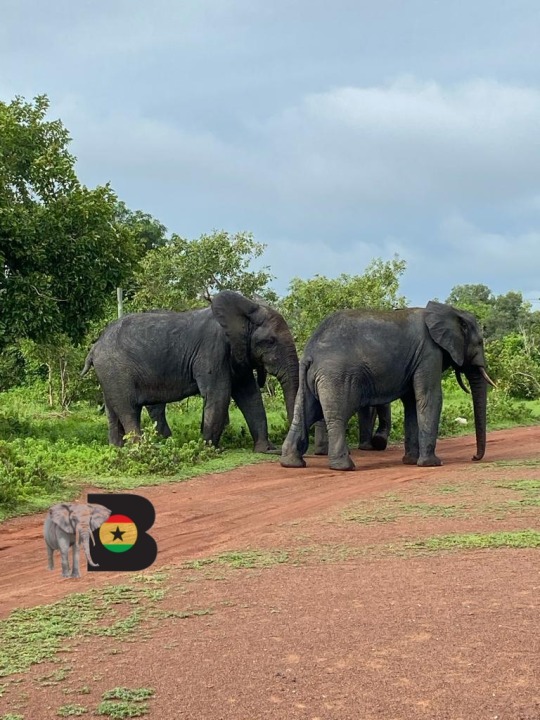
Discover the Essence of Ghana: Vibrant Cities, Serene Beaches, and Rich Traditions.
Ghana, a country in West Africa, is a treasure trove of cultural diversity, natural beauty, and vibrant cities. From the bustling streets of Accra to the serene beaches of Cape Coast, Ghana has something for everyone. In this blog post, we'll take you on a journey through the best of Ghana, exploring its rich traditions, stunning landscapes, and vibrant cities.
Vibrant Cities
Ghana's cities are a fusion of traditional and modern culture. Accra, the capital city, is a must-visit, with its vibrant markets, historical landmarks, and nightlife. Kumasi, the cultural hub, is home to the Ashanti Kingdom and its rich heritage. Tamale, in the north, is a melting pot of cultures, with a unique blend of traditional and modern architecture.
Serene Beaches
Ghana's coastline offers a relaxing escape from the hustle and bustle of city life. Cape Coast, with its stunning beaches and historic castles, is a popular destination. Elmina, with its picturesque fishing village and beautiful beaches, is another must-visit. Busua, a serene beach town, is perfect for relaxation and water sports.
Rich Traditions
Ghana is renowned for its rich cultural heritage. The Ashanti Kingdom, with its vibrant Kente cloth and traditional drumming, is a highlight. The Akwasidae festival, celebrated by the Ashanti people, is a colorful display of traditional dance, music, and costume. The Ewe people, in the east, have a unique tradition of storytelling and music.
Natural Beauty
Ghana's natural beauty is breathtaking. The Volta Lake, the largest man-made lake in the world, is a stunning sight. The Afadjato Mountain, the highest peak in Ghana, offers breathtaking views. The Wli Waterfalls, in the east, are a scenic delight. The Mole National Park, in the north, is home to a diverse range of wildlife.
Ghana is a country that has something for everyone. From vibrant cities to serene beaches, rich traditions to natural beauty, Ghana is a destination that will leave you in awe. With Best Ghana Tours, you can experience the best of Ghana, with our expert guides and carefully curated tour packages. So why wait? Book your Ghana tour today and discover the essence of Ghana!
#bestghanatours#tourism#travel#ghana#tour package#accra ghana#tourist#travelwithus#worldwide privacy tour#summer#vacation#holiday#nature#wildlife#animals#black and white#black tumblr#explore#landcape
5 notes
·
View notes
Text
Le Ghana est à la recherche de son champion FIFA de la région du Volta pour la 3eme édition du VOLTA FIFA championship !
Le 26 Novembre prochain aura lieu, au Taxi Rank de la Anlokordzi Housing Road au Ghana, la troisième édition du VOLTA FIFA championship. C’est l’un des nombreux tournois Esport d’Afrique de l’Ouest qui révèle des futurs champions mondiaux de la discipline. Ce jour-là, Daniel Osei, aka Jaguar, devra défendre son titre face aux nombreux adversaires qui voudront l’affronter. Alors, des concurrents sérieux pour notre champion ?
L’article sera mis à jour après les résultats du tournoi.

Le Volta FIFA Championship se veut « Tournoi d’Esport le plus compétitif de la Volta ». La compétition est organisée par Eze Gaming Hub en collaboration avec la Ghana Electronics Sports Association, House of Maudlyn et Victor Electonics. La première édition du Volta FIFA Championship a débuté en 2020 avec Maxline Ziddah Kofi, qui a remporté le titre de Togbui FIFA I. Le tournoi de l'année dernière a réservé de nombreuses surprises, les joueurs ont fait preuve d'un esprit de compétition et les fans ont créé une atmosphère incroyable pour soutenir leurs joueurs préférés. Le champion Max s’est fait détrôner par Jaguar, et il y avait une représentante féminine unique en la personne de Disu Isabella Akorfa. On espère avoir une aussi bonne ambiance et voir encore plus de gameuses cette année !
Si vous êtes un eAthlète FIFA qui réside au Ghana ou qui peut y voyager, vous avez l’opportunité de vous inscrire sur Whatsapp ou par appel au +2330594542679 et/ou au +2330507261194, et peut être remporter une médaille d’or et une TV 32 pouces pour le champion, une médaille d’argent et un décodeur DSTv pour le 2ème, et une médaille de bronze et un casque gamer pour le 3ème, et le titre de meilleur Gamer !

Encore un tournoi qui révèlera les talents du continent ! On se retrouve le 26 pour les résultats du tournoi !
Vous êtes intéressés par ce tournoi et vous voulez y aller, mais vous ne connaissez pas le pays, vous avez besoin d’être guidés/conseillés ?
Ne vous inquiétez pas ! Chez Apie Services, nous vous proposons un service d’accompagnement pour que vous puissiez partir sans stresser, sans avoir à vous concentrer sur autre chose que votre entraînement !
Contactez-nous sur [email protected]
0 notes
Text
Wizkid Announces ‘Live In Ghana’ Concert This December.
Wizkid Announces ‘Live In Ghana’ Concert This December.
Nigerian Multiple Award Winning and Megastar Artiste, popularly known as Wizkid has announced via his Twitter page that he would be in Ghana soon for a show. The show, which is being organized by Live Hub Entertainment, a popular show organizer, is set to take place on December 10th at the Ohene Djan Sports Stadium in Accra. Wizkid excited many Ghanaians with the news. A number of folks took to…

View On WordPress
0 notes
Text
Spotify makes money donation to Surf Ghana to spearhead a inventive hub
Spotify makes money donation to Surf Ghana to spearhead a inventive hub
Surf Ghana Within the spirit of giving again, Spotify introduced a donation to Surf Ghana, Ghana’s creator group, to assist the nation’s budding group of creators. Primarily based in Accra, Surf Ghana is a collective that makes use of the follow of utmost sports activities like skateboarding and browsing as a driver for youth improvement. The organisation additionally creates a platform for…

View On WordPress
0 notes
Photo

Baobab Market Report 2021: With COVID-19 Impact Analysis, Company Profile And Production Value By 2024
The global Baobab market is growing significantly over the past couple of years, mainly due to the demand for natural ingredients in beauty & personal care products. People are increasingly looking for new, exotic oils, and Baobab as a natural, organic ingredient appeals to the consumer. The baobab tree is known for its benefits in anti-aging products, and hence, its oil very marketable across the globe.
Baobab oil is a highly moisturizing ingredient and light on the skin, which makes it oil for all seasons. Resultantly, the baobab market witnesses steady demand and increase throughout the year. Additionally, factors such as the increasing geriatric populace and growing uptake of baobab extracts in nutraceuticals provide impetus to the market growth.
According to Market Research Future (MRFR), the Baobab market is projected to reach USD 3.75 BN by 2024, registering 9.4% CAGR throughout the assessment period (2019 – 2024). Baobab extract such as oil, powder, and pulp are gaining acceptance in industries such as food & beverages, nutraceuticals, and personal care, among others. A widespread awareness is observed among people about the benefits of foods and beverages infused with the goodness of baobab extracts.
On the other hand, the high prices and the demand-supply gap in baobab extracts are major factors impeding the growth of the market. Nevertheless, increasing numbers of health-conscious populaces and the expansion of distribution channels would support market growth throughout the review period.
Global Baobab Market – Segments
The report has been segmented into four major dynamics. By Category : Organic and Conventional
By Form : Oil, Powder, and Pulp
By Application : Food & Beverages (Beverages, Sweet & Savory Snacks, Dairy & Frozen Desserts, others), Nutraceuticals, Personal Care, and others.
By Regions : Americas, Europe, Asia Pacific, Middle East & Africa, and Rest-of-the-World.
To get more info: https://www.marketresearchfuture.com/press-release/baobab-market
Major Players:
Players leading the global Baobab market include Afriplex (PTY) Ltd. (South Africa), Baobab Foods LLC (US), Mighty Baobab Limited (UK), B'Ayoba (Zimbabwe), Eco Products (South Africa), Organic Africa (Zimbabwe), Ojoba Collective (Finland), Baobab Fruit Company Senegal (Italy), Mukwati Oils (Pvt) Ltd (Zimbabwe), Savannah Fruits Company (Ghana), Baonane SARL (Senegal), PARODI NUTRA SRL (Italy), Nexira (France), Henry Lamotte Oils GmbH (Germany), and Woodland Foods (US), among others.
Global Baobab Market – Geographical Analysis
Europe accounts for a significant share in the global Baobab market. The largest share of the market attributes to the high consumer inclination towards functional beverages. Well-spread awareness about the health benefits that Baobab fruit extracts can extent is a major tailwind pushing the growth of the market. Simultaneously, the increasing per capita income and the growing trend of health & fitness in the region provide a tremendous impetus to the market growth.
Additionally, the presence of notable baobab providers and the nutraceuticals industry in the region drives a huge market share. Besides, the sports nutrition sector influences the size of the Baobab market in the region. The European Baobab market is estimated to retain its dominance throughout the assessment period.
North America stands second in the global baobab market, mainly due to the widespread awareness about the benefits of oil extract of baobab trees. Moreover, the rising numbers of health-conscious populaces and the demand for nutraceuticals help to increase the share of the baobab market in the region. North America is a hub for a variety of organized as well as professional sports. The presence of one of the largest sports nutrition industry creates vast market demand. The baobab market in North America is expected to witness substantial growth during the review period.
Asia Pacific is an emerging market for Baobab and its extracts. Increasing demand for natural & healthy ingredients in food products is contributing to the growth of the regional market. Also, growing awareness is estimated to contribute to the regional market growth, significantly. The demand for baobab oil has been rising continually in countries such as Japan, China, and India. Suppliers of natural oils & butter have been producing and supplying baobab oil, which, as a result, is increasing the market sales in the region.
Global Baobab Market – Competitive Analysis
Highly competitive, the Baobab market appears to be well expanded with the presence of several major players operating at a global level. To gain a larger competitive share, market players adopt strategies such as mergers & acquisitions, expansion, collaboration, and product/ extraction technology launch. Producers of Baobab continue expanding its product portfolio, enhancing sustainable sourcing & production, increasing brand awareness & widening distribution. The competitive strength of market players depends on product precision, pricing, and product reliability.
Industry/ Innovation/ Related News:
February 20, 2020 ---- Nakin Skincare (the UK), a leading global luxurious natural Anti-Ageing skincare system, launched its new award-winning anti-aging skincare line created with a blend of shea, mint, and Baobab.
0 notes
Text
DELAY INTERVIEWS OSEIKROM SIKANII
DELAY INTERVIEWS OSEIKROM SIKANII
youtube
View On WordPress
0 notes